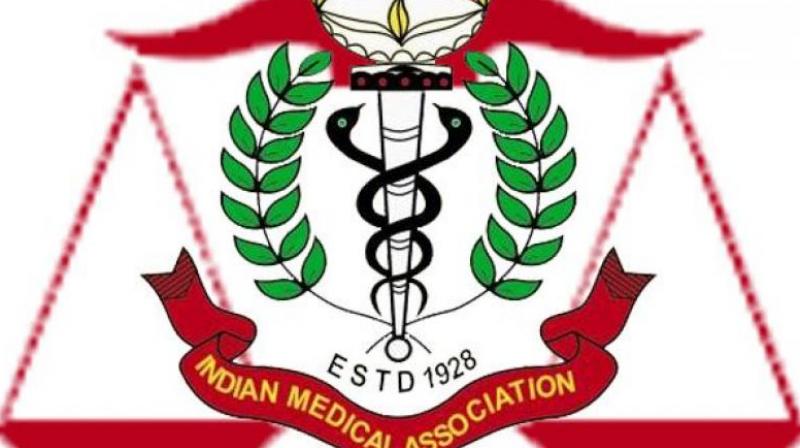50 per cent doctors have hypertension: Indian Medical Association

Hyderabad: Some fifty per cent of doctors have uncontrolled hypertension, according to a recent survey carried out by Indian Medical Association in 33 cities covering over 533 doctors.
The survey results were released on May 16 on the eve of World Hypertension Day. The study found that 21 per cent doctors had masked hypertension. This kind of hypertension is where the blood pressure readings are normal when in the hospital environment but increases once they are back at home. This kind of incidence in the general population is found in one in seven persons.
Dr G. Srinivas, senior general physician explained, “In masked hypertension, continuous readings have to be taken for 10 to 15 days during different timings like early morning, mid-afternoon and late evening to understand the pattern of hypertension.”
Masked hypertension is a common phenomenon and is often not diagnosed properly. It increases the long-term risk of sustained hypertension and cardiovascular morbidity.
The survey found that 56 per cent of doctors had irregular blood pressure patterns at night, making them prone to future adverse cardiac events. Thirty seven per cent doctors had nocturnal hypertension where the blood pressure went high only after midnight.
Dr K. K. Aggarwal, national president of IMA, explained, “Evaluating both daytime and night time blood pressure is crucial for predicting cardiovascular events.
It has been found that blood pressure reading obtained during one’s sleep is more accurate and helps in predicting all mortality when compared to those obtained during waking hours. As doctors are involved in stressful jobs, we felt it important to carry out this survey as it will help us understand where we stand and take the right steps to control it.”
Dr Shashnak Joshi, president of the Hypertension Society of India explained, “A need was felt to understand the pattern of blood pressure during day and night, and hence the ambulatory blood pressure monitoring system was adopted. This gives the blood pressure reading for 24 hours, and this has helped us identify masked hypertension and also nocturnal hypertension. The device is attached to the body and it takes the reading every 30 minutes, which is recorded in the system.”
The hectic lifestyle of doctors has also exposed them to the disease.
Apart from drug regimes, it is important to have fresh fruits, vegetables, olive oil and omega 3 foods which will help lower the blood pressure. Nutritionist Madhulika Choudhary explained, “Sprouted or whole grains must be consumed and sodium intake has to be reduced on the table and also during cooking. Processed foods, chutneys, pickles are the real culprits behind increased sodium intake and that has to be reduced or completely stopped, depending on the levels.”

